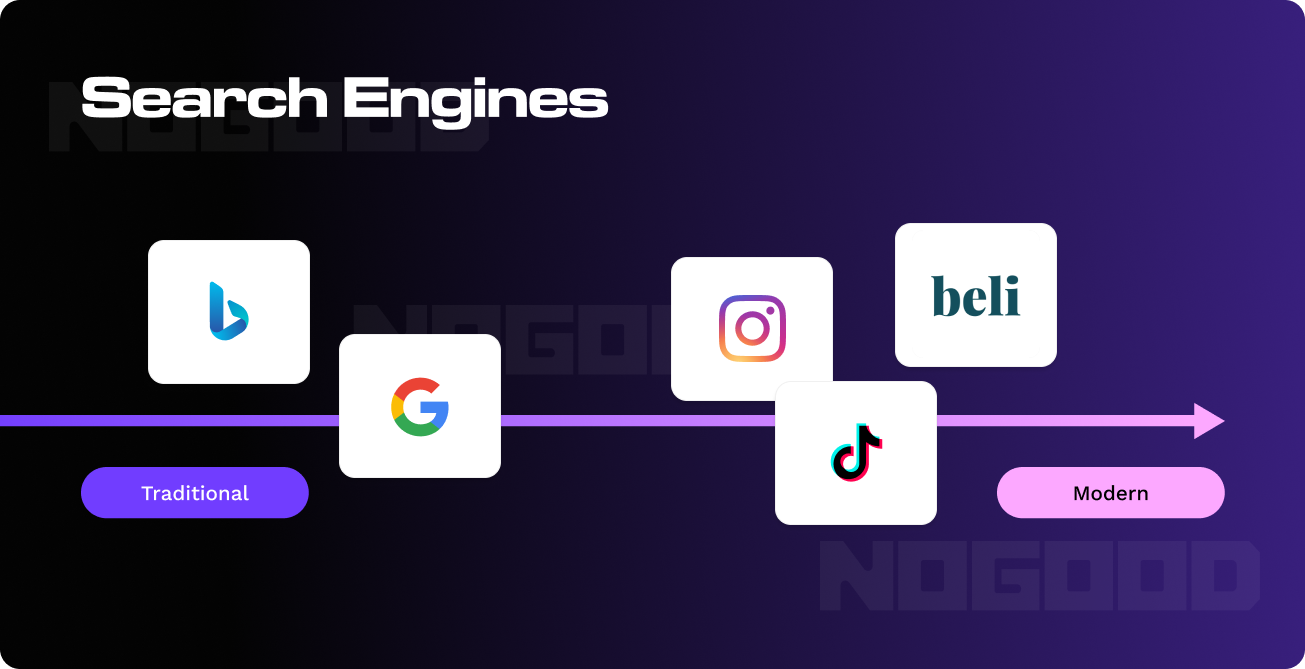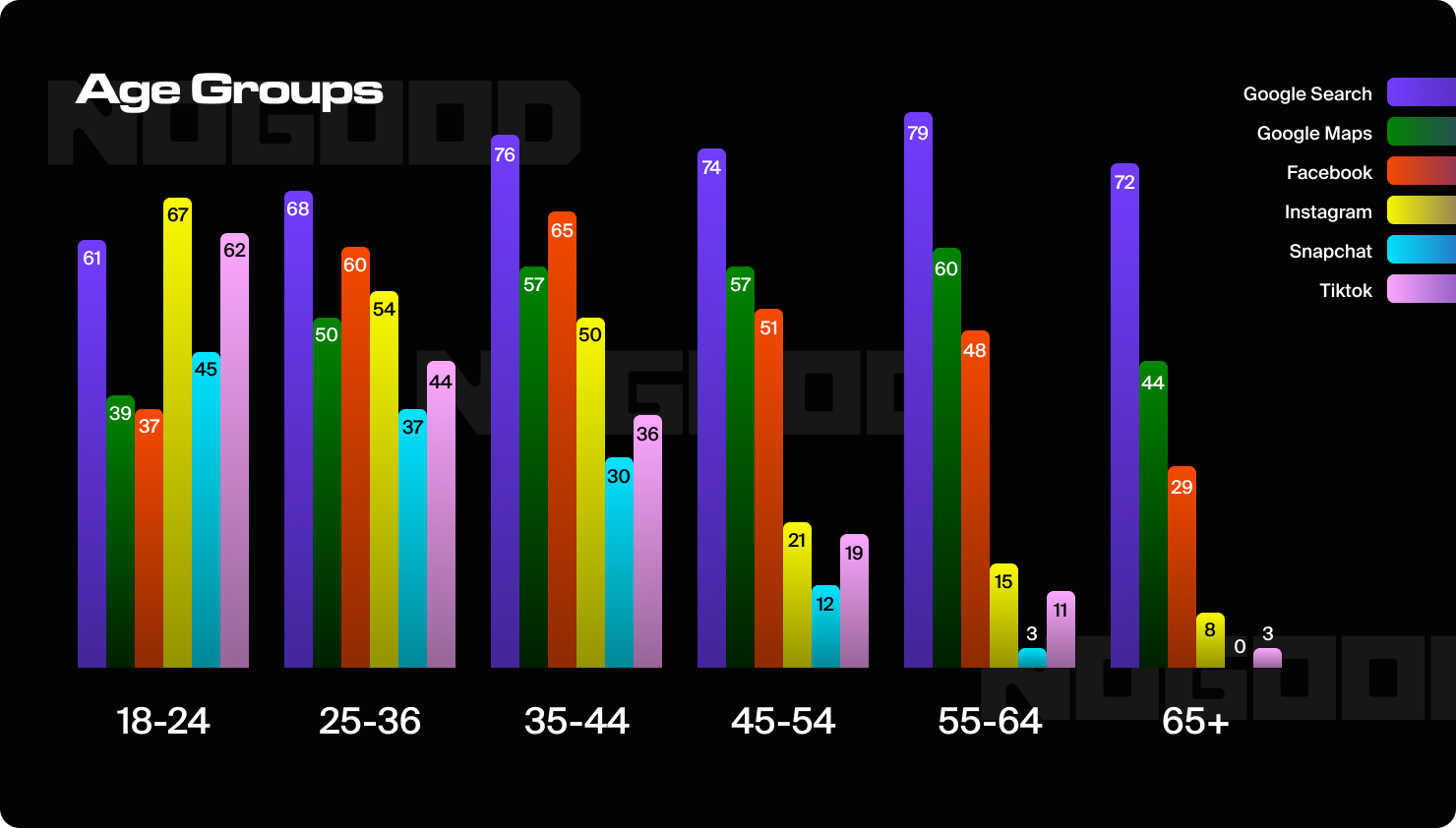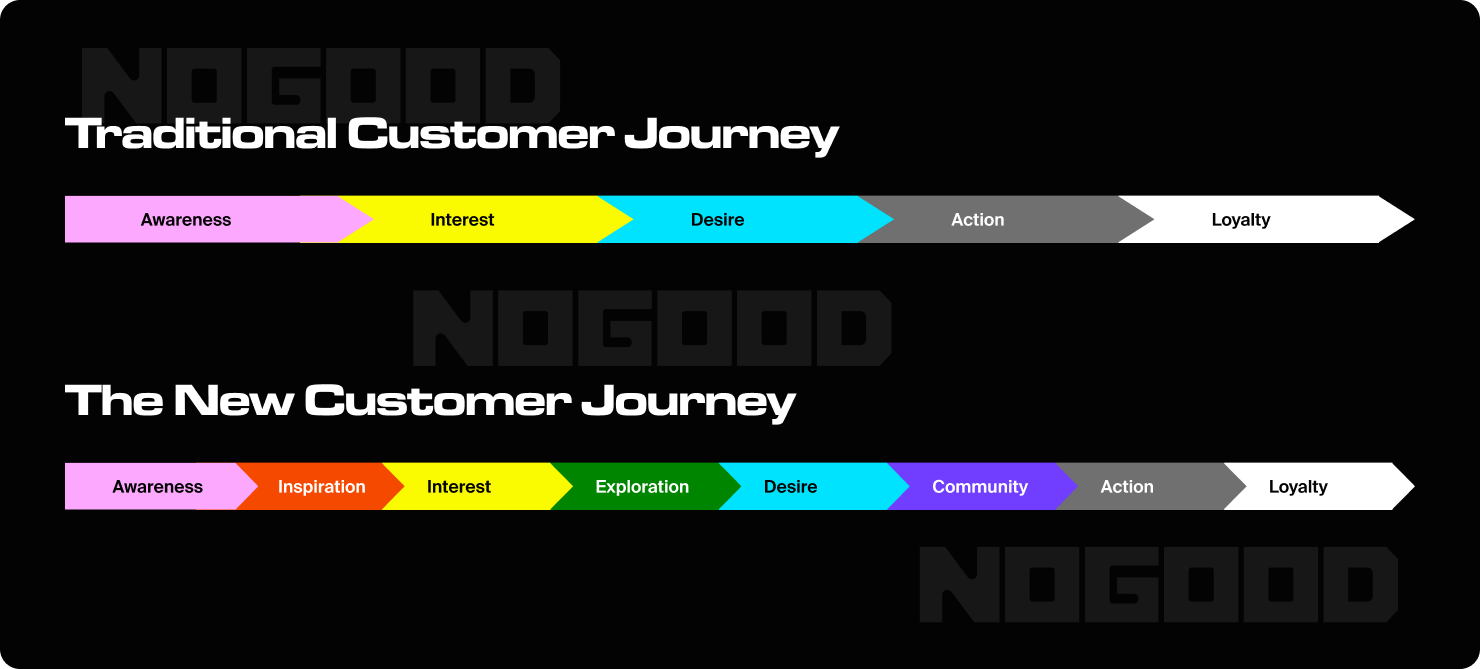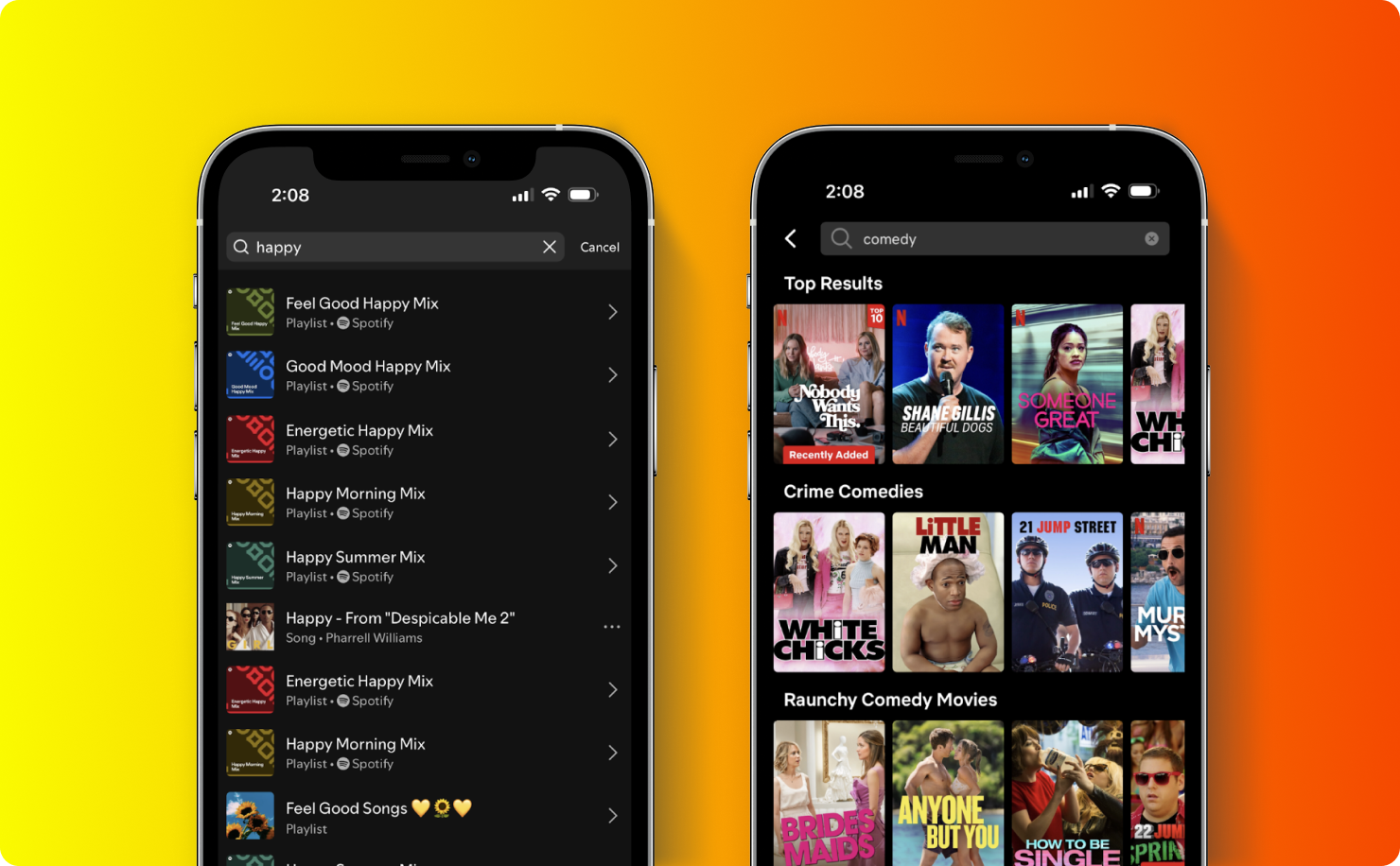Let’s face it — search has evolved, and brands can’t just rely on Google anymore. Today, users are finding what they need across platforms that aren’t traditionally thought of as “search engines.” Whether it’s Gen Z asking TikTok for product advice, shoppers using Amazon as their go-to for reviews, or travelers using Instagram to find their next destination, search behavior is highly fragmented.
So what does this mean for brands? It’s about understanding where your audience is searching and tailoring your strategy for each of these ecosystems. TikTok requires a totally different SEO approach than Google, for example—its algorithm rewards trends, user interaction, and even the virality of sound. If you’re focused only on Google, you’re missing a massive chunk of how users are discovering brands and products in 2024.
What’s more, search intent is evolving too. On Amazon, someone’s already primed to buy, but on TikTok, they might just be browsing for inspiration. Understanding the mindset behind each platform is critical to success. Brands need to think omnichannel — not just optimizing keywords but also diversifying across the platforms that matter to their target demographics.
Expand Your Search Strategy Starting With Social Platforms
Almost Anything Can Be a Search Engine
As the landscape of search continues to evolve and change, the concept of a search engine has expanded far beyond its traditional definition. While Google, Bing, and Yahoo! still take up a large majority of search activity, the emergence of niche and specialized platforms demonstrates that almost anything can serve as a search engine in its own right. This evolution highlights how diverse the tools and methods for finding information have become.
Traditionally, search engines were designed to index the web and retrieve information based on keywords and algorithms. However, the definition of a search engine has broadened to include a variety of tools and platforms that cater to specific needs and interests. These specialized search engines function not just as repositories of information but as tailored guides that help users navigate complex domains with ease.

Specific Answers Require Specific Search Engines
Google isn’t enough anymore. We’re seeing the rise of specialized search engines and vertical-specific platforms that help users get better answers, faster. Instead of turning to Google as the source of truth for all search queries, users — particularly younger Gen Z consumers — are using Beli or Yelp to find restaurants, Zocdoc to find doctors, Expedia to find hotels, and Spotify to discover new music.

While Google remains a powerful tool for general information, it often returns a vast array of results that can be overwhelming or less targeted. Google’s strength lies in its ability to index and search vast amounts of web content, making it a powerful tool for broad inquiries. However, this breadth can sometimes lead to an overwhelming number of results, many of which may be irrelevant or not precisely what the user is looking for. This is particularly evident in areas such as local dining, healthcare, travel, and entertainment, where specialized platforms offer more tailored and precise answers. For complex or niche queries, Google’s generic search results can fall short in providing the depth and specificity needed.
Specialized search engines and vertical-specific platforms are designed to cater to particular industries or user interests, offering several advantages over general search engines:
- Enhanced relevance: Platforms like Yelp and Beli offer targeted restaurant recommendations based on user reviews and preferences, delivering results that are more relevant to diners than a general Google search might. Similarly, Zocdoc provides detailed doctor profiles and appointment scheduling tools, which are far more specific than what a general search query would yield.
- Improved user experience: Specialized platforms are built with features and interfaces that cater directly to their niche markets. For example, Expedia offers comprehensive travel planning tools, while Spotify provides personalized music discovery. These tailored experiences can be more engaging and effective than the broader, less focused results of a general search engine.
- Focused data aggregation: Specialized platforms aggregate and filter data in ways that general search engines may not. This targeted approach allows users to access highly curated information, reducing the noise and irrelevant results that can clutter search engine results pages.
The rise of specialized search engines and vertical-specific platforms poses several challenges to Google’s dominance in the search market. As users increasingly turn to these niche platforms for specific needs, Google’s share of search traffic could diminish, leading to potential erosion of its market dominance. The introduction of these specialized platforms not only adds more competition but also captures valuable advertising and data-driven revenue from their targeted markets. Additionally, as users become accustomed to the tailored experiences offered by these platforms, their expectations for search accuracy and relevance may shift, putting pressure on Google to adapt and innovate beyond its traditional general search model. To maintain its leadership, Google may need to invest in developing or acquiring specialized technologies and enhance its offerings to address the growing demand for more personalized search solutions.
Apps Are Becoming More and More Specific
The overarching theme of all the changes happening in the search landscape is this demand for greater specificity and helpfulness. As users increasingly seek precise, relevant, and contextually tailored information, apps and platforms are evolving to meet these needs with remarkable specificity. This shift is driven by the desire for more efficient and effective ways to find information, services, and products that align closely with individual preferences and requirements.
As apps become more and more specific, the search landscape, therefore becomes more and more fragmented as a result. Even in the dating and relationships space, the so-called “search” for a romantic partner has reflected the same shift towards greater specificity and segmentation. The (relatively) generic dating apps like Tinder and Bumble are starting to share the market with more specialized dating apps like Hinge, Feeld, The League etc. Hinge focuses on fostering deeper connections through detailed profiles and conversation prompts, aiming to build meaningful relationships rather than casual encounters. Feeld is designed for those exploring alternative relationship dynamics, including polyamory and open relationships, providing a space for non-traditional dating. The League offers a curated experience, targeting career-focused individuals by emphasizing professional accomplishments and social status. Drybaby, on the other hand, caters to those seeking sober dating experiences, creating a supportive environment for individuals who prioritize sobriety.

Gen Z Search Behaviors are Changing
Apps and search engines are evolving and adapting because Gen Z search behaviors are changing — and it’s a good thing they are. Gen Z uses social media more than search engines for brand discovery and information. In 2023, more than half of global Gen Z respondents said they use social media for brand information, compared to 45% who used search engines. TikTok is also a major part of the search engine discourse for Gen Z. A survey found that 51% of Gen Z respondents chose TikTok over Google as their search engine. This is a huge change from the past as Gen X and Millennials have pretty much turned “google” into a verb, yet now we’re seeing Instagram and TikTok come out on top as the preferred search engines for Gen Z.

The shift is evident, but it’s not just enough to note which platform Gen Z users are using as their go-to search engines — the more important question lies in the why. Why do Gen Z users prefer social media platforms like TikTok and Instagram to traditional search engines like Google? Here are a few reasons.
1. Discovery over immediacy
Unlike traditional search engines, which often prioritize quick answers to specific queries, social media encourages exploration and discovery. Users can scroll through endless feeds filled with diverse content, allowing them to stumble upon new trends, ideas, and interests that they might not have actively sought out. This approach transforms searching into an enjoyable experience, where the journey of finding something unexpected is just as valuable as the end result. The ability to discover unique and engaging content fosters a deeper connection to the platform and enhances overall satisfaction.

2. Visual-first experiences
Social media platforms excel in providing visual-first experiences that Gen Z users have grown to favor (and expect). With a heavy emphasis on images, videos, and creative content, these platforms create a more immersive environment compared to the text-based format of traditional search engines. This visual appeal makes information more digestible, memorable, and engaging, as users are naturally drawn to eye-catching visuals and dynamic storytelling. Whether it’s a quick tutorial on TikTok or a highly-curated carousel on Instagram, the emphasis on visuals allows for a more compelling and entertaining way to consume information, making it easier for users to connect with the content and retain what they’ve learned.
3. Social proof and community validation
Social proof and community validation significantly influence Gen Z’s search habits, driving them to rely on social media platforms for information and recommendations. Content created by peers, influencers, or trusted figures is often seen as more authentic and relatable than traditional advertising or search engine results. When users see others engaging with a product, service, or idea, it instills a sense of trust and credibility, leading them to prioritize these platforms for decision-making. This communal aspect fosters a shared experience, where users not only seek information but also engage in discussions and share their opinions, further validating their choices and enhancing their sense of belonging within the community.
Ironically, the “best” search engines for Gen Z users tend to be apps that simply serve as a platform for others’ opinions (e.g. Reddit, TikTok, Beli) instead of the ones that are designed to deliver a single, accurate answer. With the rise of the creator economy, paid partnerships and influencer deals, users are becoming skeptical of even the content that’s organically posted on social media. This has led to the practice of reading TikTok comments as another level of search and discovery, where users are able to form their own opinion based on varying inputs from a community of multiple users.
The Higher Standard for Personalization
Gen Z grew up with social media and tends to have a very high standard for personalization that google just isn’t achieving. Searchers are getting lazier — meaning they want more accurate and personalized answers to their specific questions faster. Google’s AI Summary feature has attempted to answer to this need, but even with that level of speed and convenience, it still lacks the social proof and personalization that alternative “search engines” have.
Let’s take the search for content as an example. If a user wants to listen to music or watch a movie, they aren’t going to Google to search for that because they know that there are platforms that can give them that deeper level of personalization. For music, users can go straight to Spotify and type in a specific mood or vibe and immediately get a curated mix of songs tailored to that search term that takes into account their unique music preferences. Similarly, users can type a movie genre into their Netflix search bar and get content recommendations tailored to their tastes based on their viewing history. Non-traditional “search engines” like Spotify and Netflix are able to offer a higher degree of personalization because of the large amounts of user data they have on every individual user — something a simple Google Search simply isn’t able to achieve. As a result, users are turning to streaming platforms and apps for their content search needs, and Google loses a whole chunk of search traffic to these specific, personalized search experiences.

How Brands Should React to The Fragmentation of Search
The search landscape is fragmented, whether we like it or not; however, this isn’t necessarily a bad thing for brands. In fact, the fragmentation of search provides brands with a unique new opportunity to optimize their presence across a variety of different platforms to create a holistic, cross-channel brand experience.
To remain competitive, brands must adjust their strategies to align with this new search paradigm. Here are a few key actions they can take:
1. Embrace niche platforms:
Brands need to identify which specialized search engines or apps their target audience is using. For example, a restaurant may benefit more from being visible on Yelp, Beli, or OpenTable than simply relying on Google searches. Similarly, lifestyle brands should focus on social media platforms like Instagram or TikTok to engage Gen Z, who increasingly prefer these for discovery.
2. Tailor content for specific search behaviors:
As search habits become more platform-specific, brands should craft content that fits each platform’s unique format and user expectations. Short-form, visual content thrives on TikTok, whereas detailed, review-centric content may perform better on Yelp or niche communities like Reddit.
3. Leverage personalization:
Specialized platforms often excel in delivering highly personalized experiences. Brands should focus on providing tailored content, product recommendations, or services that cater to individual user preferences. This will require harnessing user data and employing personalization strategies to meet higher expectations.
4. Capitalize on discovery:
Unlike traditional search engines that focus on direct queries, platforms like TikTok and Instagram promote discovery through algorithms that suggest content. Brands can create engaging, shareable content that encourages exploration and taps into trends, positioning themselves to be found organically by users.
5. Incorporate consumer input in your brand strategy:
Your consumers play an active role in shaping your brand. Through reviews, social media posts, and user-generated content, your audience is a vital part of how your brand is perceived. Brands should listen closely to customer feedback, engage in two-way conversations, and encourage users to create content that aligns with their values. When consumers feel heard, they become loyal advocates, contributing to a more authentic and trusted brand image.
6. Empower loyal advocates to amplify your brand:
Your most loyal customers are your best advocates. With the rise of social platforms and niche search engines, consumers trust peer recommendations more than traditional advertising. Brands can leverage this by fostering strong relationships with advocates through loyalty programs, exclusive content, and ambassador opportunities. By empowering these advocates to share their positive experiences, brands can organically extend their reach, driving trust and engagement across the fragmented search landscape.
By recognizing the shift from a singular search engine model to a fragmented, app-based search ecosystem, brands can remain relevant and competitive, meeting users where they already are.






